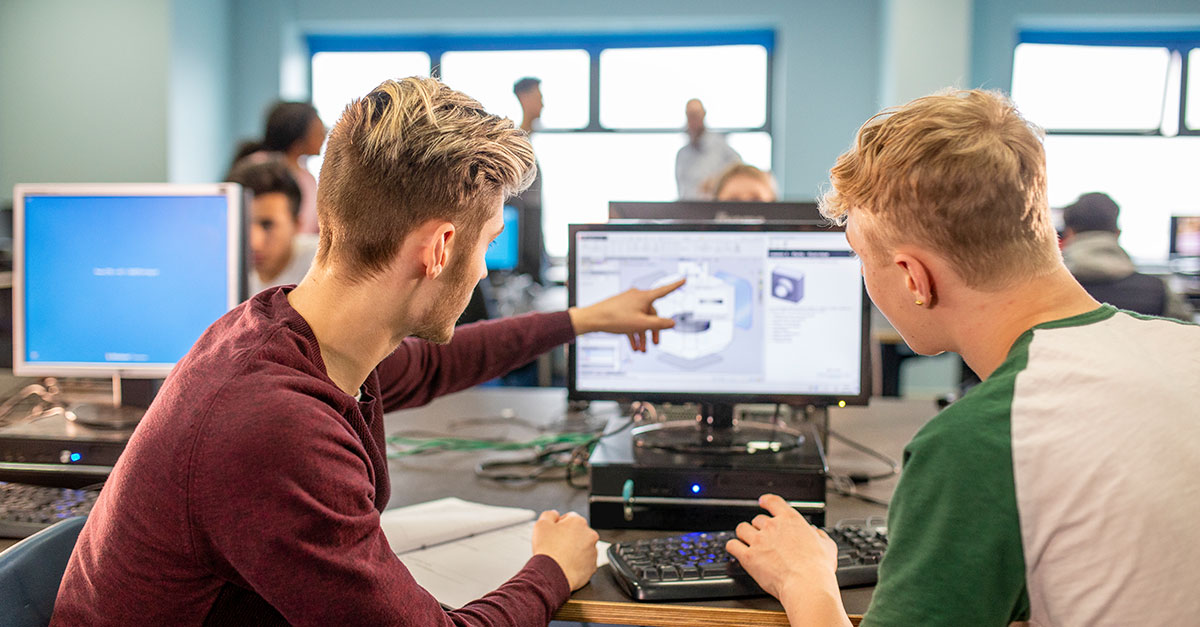Author:
Francesca Massam
In today’s competitive job market, providing a positive and engaging candidate experience is essential for organisations to attract and retain top talent. It’s critical to focus on assessment methods that evaluate candidates effectively, but also generate a quality candidate experience. By actively working with candidates through their learning and assessment journey, you can create a favourable and engaging experience for candidates. In this blog, we will explore how collaborating with candidates can generate the best candidate experience, focusing on the importance of candidate feedback, setting clear guidelines, and using the right assessment approach.
1. Emphasising candidate feedback
Feedback in assessment is an enabler of teaching and learning and provides an invaluable opportunity for continuous improvement (Adarkwah, 2021). Feedback can take various forms like surveys, interviews, or dedicated feedback sessions but the common factor for success across all of these is generating feedback that is frequent, constructive, personal, and timely.
Candidates taking an active role in the feedback process is crucial for improvement (Vattøy et al, 2021). Not only does it demonstrate their opinions are valued and promote inclusivity, but it also highlights a commitment to continuous improvement and enables the candidates to take charge of their learning. Actively soliciting feedback at different stages in an iterative approach helps to identify areas for improvement for the candidate and for the assessment itself. Subsequently, learning journeys become more personalised and assessments are refined to become more relevant, fair, engaging and impactful. Opportunities for open dialogue with students throughout the assessment process should be prioritised to optimise every candidate’s experience.
2. Setting clear guidelines
Communication, communication, communication. It’s a skill we know is integral for every role in life – personal, work or otherwise. Therefore, we need to make sure assessments are exercising effective communication to give candidates the best possible opportunity to succeed.
Two-way communication and clear guidelines are the foundation of providing a positive candidate experience and an effective assessment process. From the outset, candidates should be provided with a comprehensive overview of the assessment process, objectives, expectations and timelines, and a forum for open dialogue. The criteria for success should be clearly outlined as well as what competencies or skills will be assessed and how. This level of detail and clarity allows candidates to adequately prepare and align their expectations with the process, minimising confusion and anxiety in the lead up to the assessment. Moreover, providing guidance on how candidates can best demonstrate their abilities ensures a level playing field and enables them to showcase their true potential.
3. Using the right assessment approach
If students are expected to demonstrate their skills and knowledge learned through assessment, we need to make sure the assessment aligns with intended learning outcomes. Choosing appropriate methods of assessment will help to provide a more comprehensive understanding of candidates’ capabilities and potential. While traditional assessments like interviews and written exams have their place, incorporating more innovative approaches that align more closely with learning outcomes and job requirements will help to generate a more holistic assessment. For example, interactive simulations, case studies, or behavioural assessments can offer valuable insight into how candidates perform in real-world scenarios. By choosing assessments that accurately reflect the demands of the role, it provides a precise and efficient way of identifying candidates that are a best fit while enhancing their experience by enabling them to showcase skills and potential in a meaningful way. As we experience a shift towards more formative assessment, a diverse assessment strategy can help to provide that holistic overview of each student and ensure a more engaging candidate experience.
Inclusion is empowering candidates
In today’s competitive talent landscape, providing an exceptional candidate experience is a strategic imperative. By actively working with candidates and incorporating their feedback, organisations can enable a continuous learning environment and refine the assessment process. Establishing clear guidelines and effective two-way communication throughout the assessment process ensure that candidates understand what is expected and feel empowered to perform at their best. Finally, adopting the right assessment approaches that align with the purpose or role provide meaningful insight into candidate’ true capabilities. By working with candidates and involving them in their learning, you can create a more engaging, personal, and impactful experience for all.
References
Adarkwah, M.A. (2021) 'The Power of Assessment Feedback in Teaching and Learning: A Narrative Review and Synthesis of the Literature', SN Social Sciences, 1(75), [Online]. Available at: https://doi.org/10.1007/s43545-021-00086-w
Vattøy, K-D., Gamlemand, S.M. and Rogne, W.M. (2021) 'Examining Students’ Feedback Engagement and Assessment Experiences: A Mixed Study', Studies in Higher Education, 46(11), pp. 2325-2337 [Online]. Available at: https://doi.org/10.1080/03075079.2020.1723523

